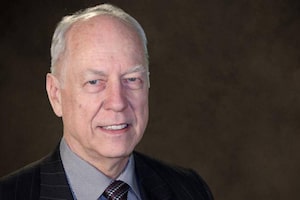The Harper government's statement that it is not running for a United Nations Security Council seat in 2014 means less than it appears, and more.
Less, because in practice, there has never been a prospect of Canada's running in 2014. In the first place, running now would effectively abrogate an informal agreement among Canada, Australia and New Zealand, the CANZ group, our long-standing and arguably most productive diplomatic partnership in UN affairs. CANZ countries endeavour to alternate on the Security Council and to support each other's candidacies. Running in 2014 would mean competing with New Zealand which has long since announced its intention to run after Australia completed its term. This would be double-crossing an ally, which would be wrong in itself and also a poor basis for others to support us.
Second, as a practical matter, Ottawa is not ready to run. Successful UN Security Council campaigns typically take years of effort, as support has to be found one country at a time, not unlike campaigning one doorstep at a time in Canadian elections. Nor were we likely to attract the amount of support needed to win. Many votes have already been committed, at least for the first round of voting.
And as we were painfully reminded in 2010, what a country stands for matters in UN elections. Then as now, our policies on the occupied West Bank, on climate change and on the UN itself alienate many, who see them not as the expressions of principle that Ottawa portrays them to be but as manifestations of ideological, unfair and self-serving policy. This alienation also lies behind Qatar's efforts to lure International Civil Aviation Organization out of Montreal.
The Harper government statement means more, though, because when taken with the body language of withdrawals from UN bodies and other snubs, it can reasonably be interpreted as meaning 'not in 2014 and not ever' as long as our current leadership has anything to say about it – much like John Howard's Australian government after it lost a UNSC election in 1997 (ironically also to Portugal, which prevailed over Canada in 2010).
Security Council membership has become a kind of Rorschach test through which Canadians project their attitudes towards the United Nations. Some on the right see the world body as the embodiment of evil, a relic that is at once independent of its members and controlled by the tyrants among them, an agency that is soft on Islamism and terrorism and unfair to Israel, insufficiently willing to follow the West's enlightened lead even if the destination is catastrophe as it was in Iraq, and unworthy of the beneficent attention of Canada's newly principled foreign policy.
Canadian apologists tend to see the UN as the place where the world comes together in happy democratic assembly, a parliament in which power yields to principle, where chicanery, misdirected effort and malevolence are as good as unknown, an institution that can save the innocent from their oppressors by earnest invocations of peace and by carpet bombing the perpetrators with diplomatic notes.
The reality is that the UN is better than its critics think and worse than its apologists admit. Their caricatures only confuse what passes for foreign policy debate in this country.
The UN will endure as long as its members want it to endure. And as long as the UN is the only organization that can convene the entire world under one roof and sustain the norms that let the world live largely in peace, it is likely to endure for a long time to come. The UN Charter is the global rulebook that despite its imperfections – notably the veto enjoyed by the five permanent members of the Council – the vast majority of countries see it as in their interests to respect. The extensive body of international law, treaties, norms, practices, innovations and institutions the UN has generated over decades governs most facets of interstate relations.
The UN has become a kind of motherboard of global governance which, together with its "apps," brings greater order and purpose to world affairs and greater security and progress to people's lives. In the process, the UN makes it possible for ideas such as the Millennium Development Goals to drive international policy-making and for other organizations. In the descriptive phrase of Richard Haass of the U.S. Council on Foreign Relations, we live in a world of "messy multilateralism," that entails multilateral, minilateral and bilateral co-operation between governments.
The UN is not sufficient to good global governance but it is necessary. This is part of the reason that while Canada retreats in presumed ideological purity from the UN, countries such as India, Brazil, Japan and Germany work to acquire permanent seats on the Security Council. If we too want to protect our interests and to promote our values effectively, we need to re-engage with the UN, with a clear-eyed appreciation of the organization's strengths and weaknesses. It is not too late to start, but 2014 is too soon to run for the Security Council.
Paul Heinbecker is a former Canadian ambassador to the United Nations and chief foreign policy advisor to Prime Minister Brian Mulroney. He is currently with Laurier University and the Centre for International Governance Innovation.
 Paul Heinbecker
Paul Heinbecker